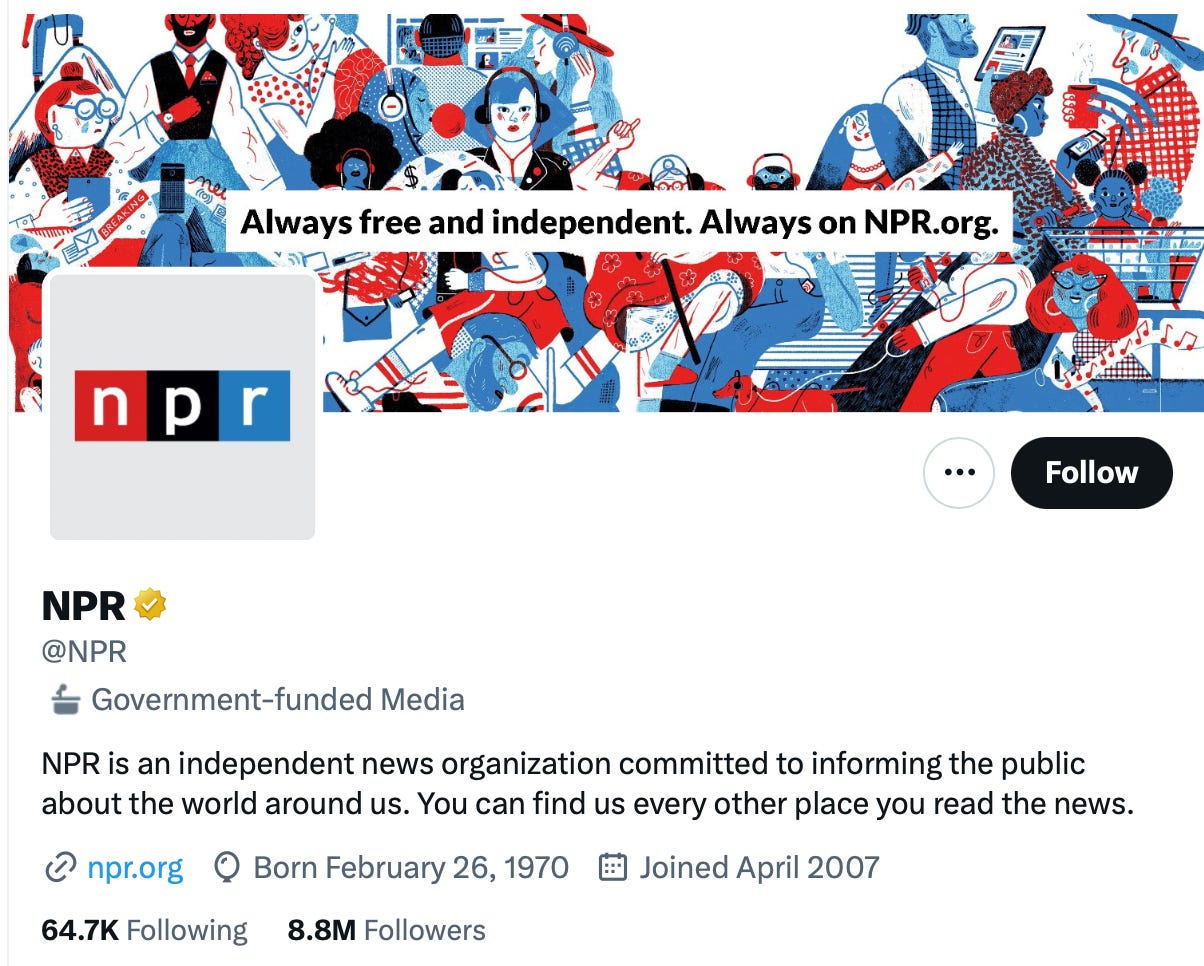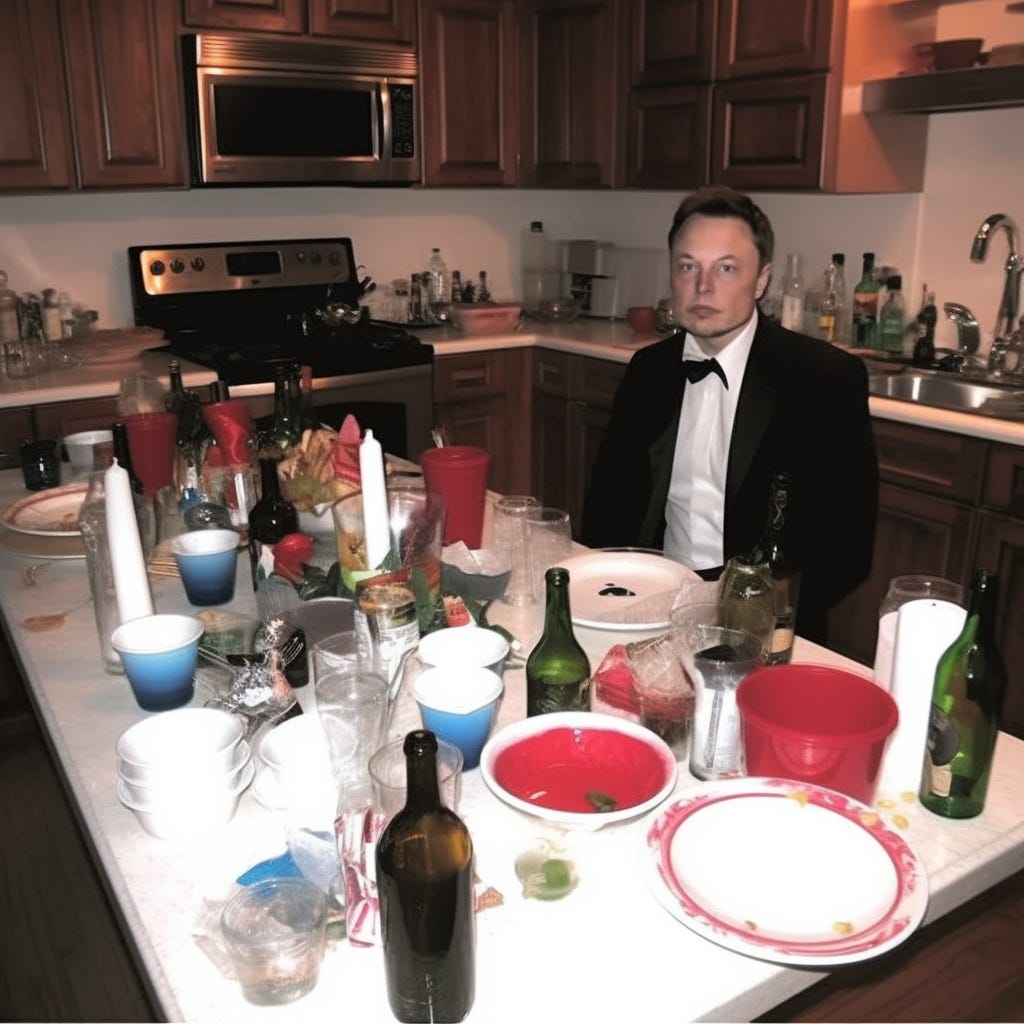Elon Musk has turned Twitter into the online version of the mean rich kid’s house party. If you’re seen at the party, you might get noticed later in the halls at school. And so maybe you go. Because it’s hard to not be seen.
But after a few minutes you realize that being at the party is miserable and a little scary. Every room is dominated by posturing bros. You can’t find your friends. There’s someone puking in the kitchen. The rich kid is surveying the red solo cups and pineapple-topped pizza like he’s some kind of lord of the manor. And when he passes you and grabs your ass, he thinks he’s being beneficent.
When I was younger, I smiled nervously in that kind of environment before quickly finding a way home, where I cried. As I got older, I learned I didn’t want to be recognized by people who had fun in those rooms. And when someone grabbed my ass, I raked my nails across their face.
When he passes you and grabs your ass, he thinks he’s being beneficent.
I’m so angry at Musk and every man like him. The ones funding reproductive healthcare restrictions while putting up statues of little girl power for PR. The ones committing address fraud to get elected while expelling Black men from their rightfully-elected positions. (We know about that because of excellent reporting from Judd Legum ) The ones strip-mining our lives for data while pretending their meager offering of digital influence is payment enough.
I’m so angry I can’t walk out of all their little shitty parties. But I can’t. Because they’ve used codes and courts to invade my house, my work, my country, my entire life. But I can leave Musk’s. And I finally am. I’m not sure what’s finally pushing me out the door.
Was it the way Twitter banned Substack posts last week? I loved this from
Casey Newton about Elon’s war on Substack. Or maybe my exit started when I was personally shadowbanned on Twitter a few months ago? Was it when the Twitter algorithm was coded to downrank posts about the war against Ukraine?
Maybe leaving has to do with the decreased functionality of the app. I never see the people I follow. And I can’t discover anyone or anything new on there anymore. Twitter was once a place where I could find voices and ideas that are often silenced by gatekeepers. But now I’m served far-right nonsense and, lately, weirdly hostile anti-newsletter posts from strangers.
Or maybe it’s the way troll and bot swarms have been activated against the most vulnerable users on Twitter?

Or maybe it’s the fact that as of yesterday, NPR will no longer post on Twitter. Elon Musk labeled the news organization “state-affiliated media.” This is the label Twitter has always used for state-run media from authoritarian countries like Russia. NPR is a non-profit with complete editorial freedom. Musk may not like their viewpoint, but that doesn’t make them state-run.
He later changed the label to “government-funded media.” NPR receives “receives less than 1 percent of its $300 million annual budget from the federally funded Corporation for Public Broadcasting.” If NPR is government-funded, then every single tech company that’s received government funding/contracts for R+D is too. (So most huge big companies.) And at far higher percentages than NPR’s measly less than one percent.
But weirdly, Musk’s company, SpaceX, does not have a government-funded label on its Twitter account, even though The Information reports that
“SpaceX was awarded $2.2 billion and $2.8 billion in federal contracts in 2021 and 2022, respectively, the majority of which came from NASA, according to public records. Those figures also include its deals with the SDA contracts, but exclude any classified contracts.”
Musk has also failed to label Twitter’s account to reflect its state-funding. Only the state isn’t the United States, it’s Saudi Arabia. In October,
“Prince Alwaleed bin Talal bin Abdulaziz of Saudi Arabia announced in a Securities and Exchange Commission filing that he’d made good on his $1.9 billion commitment, making him the social media company’s second largest shareholder after Musk.”
When NPR announced they were leaving Twitter, its CEO John Lansing said, “"I would never have our content go anywhere that would risk our credibility." And I respect that. But I’m mostly leaving because I don’t want to smile nervously at Elon Musk’s party anymore.


